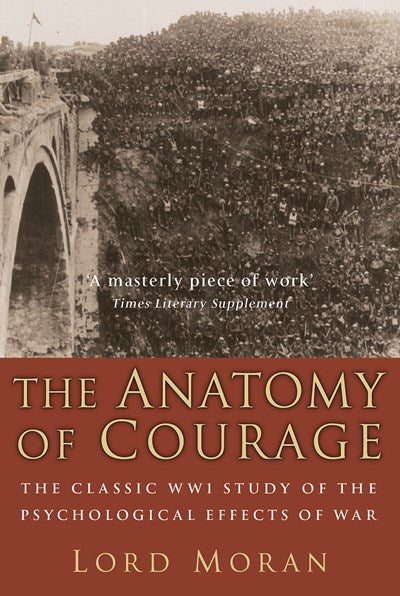Fear, and man's attempt to master it, is of eternal interest and just as significant today as when Moran, as a young medical officer, went to the trenches in 1914 to research the subject scientifically. He asked why a man can appear to be as brave as a lion one day and break the next and, crucially, "what can be done to delay or prevent the using up of courage?"
First published in 1945, this early groundbreaking account of the psychological effects of war, recounted by means of vivid first-hand observation and anecdote, came at a time when shell-shock was equated with lack of moral fiber. In 1940, Moran became Churchill's doctor and his position as a one of history's most important war physicians was secured. His humane, considered observations, scientific analysis and proposed solutions constitute one of the great First World War sources. However, they are perhaps just as relevant to our own conflict-ridden times.
Fear, and man's attempt to master it, is of eternal interest and just as significant today as when Moran, as a young medical officer, went to the trenches in 1914 to research the subject scientifically. He asked why a man can appear to be as brave as a lion one day and break the next and, crucially, "what can be done to delay or prevent the using up of courage?" First published in 1945, this early groundbreaking account of the psychological effects of war, recounted by means of vivid first-hand observation and anecdote, came at a time when shell-shock was equated with lack of moral fiber. In 1940, Moran became Churchill's doctor and his position as a one of history's most important war physicians was secured. His humane, considered observations, scientific analysis and proposed solutions constitute one of the great First World War sources. However, they are perhaps just as relevant to our own conflict-ridden times.

